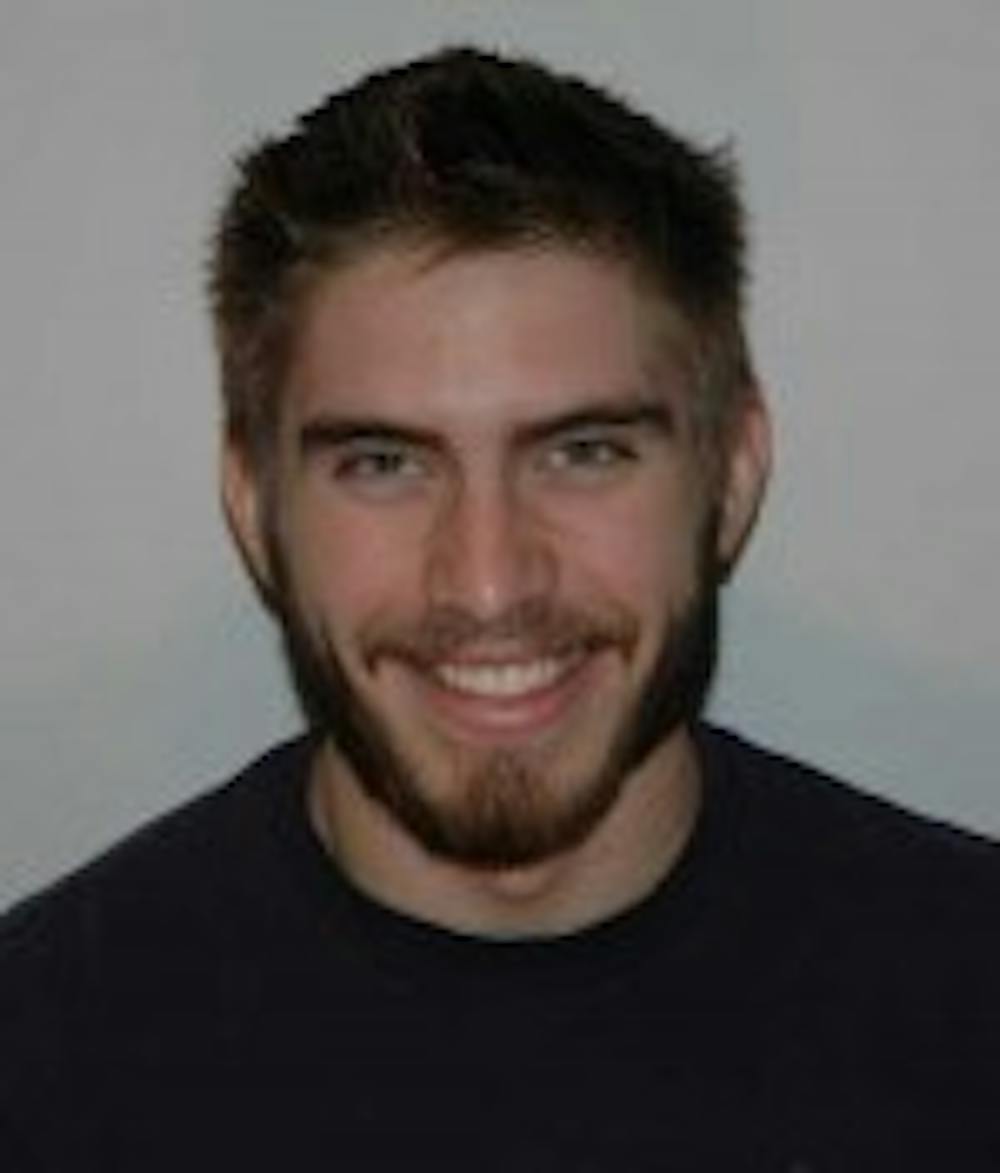Zacarias Moussaoui isn't fighting for his life. The surly character who has been chosen as the hangman for the U.S. Justice Department's case against al Qaeda is clearly fighting for his death.
Facing six counts of conspiracy, Moussaoui took the stand Monday. And stand he did. A man that other al Qaeda members identify as a bungling idiot claimed that he was supposed to pilot a fifth plane on Sept. 11 and fly it into the White House.
Khalid Sheikh Mohammed, who organized the attacks, gave a deposition from his Central Intelligence Agency detainment that stated otherwise.
Moussaoui is glorifying his role in an effort to call down the full extent of the law's punishment and become a martyr. He has created a grandiose lie that is almost too good to disregard. And the prosecutors aren't about to. They are pushing the jury to believe that Moussaoui did indeed mean to crash a plane into the White House. They don't want to be painted as the prosecutors who let live a terrorist with admitted machinations to kill Americans and destroy one of the primary symbols of U.S. government, not to mention probable hopes to kill the President.
A death sentence of Zacarias Moussaoui, however, would set a dangerous and inappropriate precedent that it does not take unquestionable evidence of wrongdoing to be killed by the American government.
The defendant has definite ties to al Qaeda, and was ostensibly preparing to take part in a hijacking. According to the indictment, he purchased and owned training videos on how to fly a Boeing 747. He was and is by no means a well-meaning resident. In fact, he's undeniably deserving of some sort of punishment.
But in order to kill Moussaoui, the jury needs to believe that he contributed in some way to the deaths of Sept. 11 victims. This is where the deliberation process is likely to create heated conflict, as the question becomes, "What constitutes a tangible contribution?" He did not take part in any of the attacks, nor does it seem he aided in their invention or preparation.
The prosecutors had Moussaoui identify 15 of the 19 original hijackers, to establish a visual connection to the group, according to CBS News' legal analyst Andrew Cohen, which is only appropriate in a case for which appearance is everything.
Americans want terrorist blood, specifically that of the terrorists who struck our country four-and-a-half years ago. It's only patriotic to want the heads of Osama bin Laden and Khalid Sheikh Mohammed. And we have one of them, and he has confessed to his role in the attacks. Justice will come. No matter how long the wait, putting Mohammed to death will be a moment of great retribution for the lives of the 3,000 Sept. 11 victims.
But dropping the lethal dose too early on the wrong man will do several things. It will set a horrible precedent. It will also mitigate the impact of killing the right men.
The prosecutors and other proponents of the death of Zacarias Moussaoui should ask themselves what message it is they intend to send. The pursuance of the death penalty smacks of the sentiment of George Bush's perhaps ill-chosen words shortly after Sept. 11, "There's an old saying in Texas. Wanted, dead or alive."
Not every member of al Qaeda deserves to die. One does not qualify for the death penalty until it can be proven that they have committed a crime that is regarded as worthy of it. The death by association clause has yet to be written into law.
Assuredly many Americans will laud and cheer and laugh and play if the jury, which is expected to deliberate as early as Wednesday, decides that Moussaoui should be put to death. The ramifications, however, could set the bar terribly low for what degree of rationality our justice system will uphold when punishing terrorists. The law should not adapt to the social climate and should not reflect a nationalistic lust for revenge. Killing Moussaoui will only damage the reputation and validity of the U.S. justice system.





